As the climate movement mobilized to Break Free from fossil fuel projects in May, the 350.org Japan team held a chain of actions leading up to the G7 Summit in Iseshima, Japan. Our goal was to highlight Japan’s major role in financing international coal and to send a message to Japanese institutional investors to divest from fossil fuels.
Unbeknownst to the rest of the world, Japan is the biggest public financier of coal in the world. According to a new report by NRDC et al. on coal financing by G7 nations, “Between 2007 and 2015, Japan financed more than $22 billion worth of coal projects—52 percent of total G7 public finance for coal.”
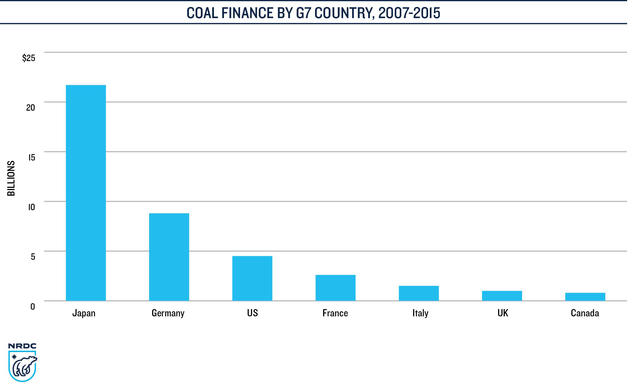
Even lesser known is that Japanese private financial institutions pour huge sums of money into coal and fossil fuel companies across the globe. Last year, we commissioned a study and found that in 2014, private Japanese banks and insurance companies invested nearly 5 trillion yen (approximately $45 billion USD) into domestic coal related companies alone.
On top of all of this, Japan plans to build 47 new coal-fired power plants domestically, which is devastating news for climate change, public health and the economy. A recent report by Greenpeace and Harvard University found that over their lifespan these new plants will cause at least 10,000 premature deaths. Another report by Oxford University revealed that Japanese coal plants–new and old–could result in 80 billion US dollars worth of stranded assets.
So why is Japan still investing in coal? (while the world moves towards renewables)
Japan has increased its reliance on fossil fuels, notably coal, since the Great East Japan earthquake of March 11th, 2011, which led to a meltdown at the Fukushima nuclear plant followed by large-scale public opposition to nuclear energy.
Using more fossil fuels rather than renewables to replace nuclear power means Japan will not be able to meet its commitment under the Paris Climate Agreement and risks locking in polluting power plants for decades. The only explanation for this continued resistance to renewable energy lies in the flow of both public and private finance from Japan’s banks and institutional investors to major power corporations, whose interests are to restrict new renewable energy power generation that will disrupt their business model.
Given the serious inadequacy of Japan’s climate policies and the ongoing nuclear disaster, we are using every opportunity to push for divestment from both fossil fuels and nuclear and a shift in investment flows to expedite the transition towards a 100-percent renewable energy society.
And that’s exactly what we did using the global spotlight on Japan as the host of this year’s G7 Summit held in Iseshima from 26-27 May.
#coaljapan actions ahead of the G7 Iseshima Summit
One day ahead of the G7 Finance Ministers Meeting, On Thursday, May 19th, we held our first action in front of the Japanese Ministry of Finance to send a clear message to Taro Aso (Japan’s Finance Minister) calling for Japan to immediately end new finance for coal and transition its investments towards renewable energy. 350.org Japan members dressed up wearing “Coal Japan” sashes, and handed out “clean” and “cheap” coal gifts to people commuting to work. The gift contained a lump of coal and a factsheet on why “coal is not “cool” or “clean” – brand jamming the Japanese Government’s “Cool Japan” promotional campaign.
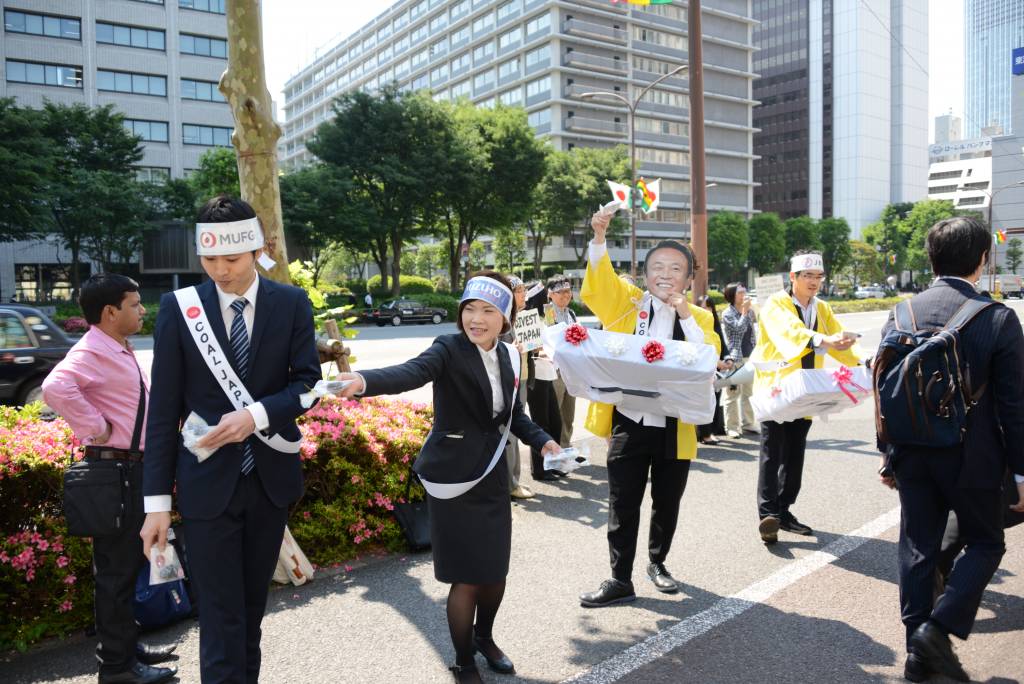
350.org Japan team and volunteers handing out coal “goody bags” in front of the Japanese Ministry of Finance to commuters, dressed as representatives from Japan’s major banks.
In our second action of the day, we gathered in front of the Japan Bank for International Cooperation (JBIC)–the largest single public financier of coal projects in the world–to oppose financing of coal-fired power plant projects such as those in Batang, Indonesia and Darlipali, India. Both projects are reportedly rife with land-grabs and other human rights abuses.
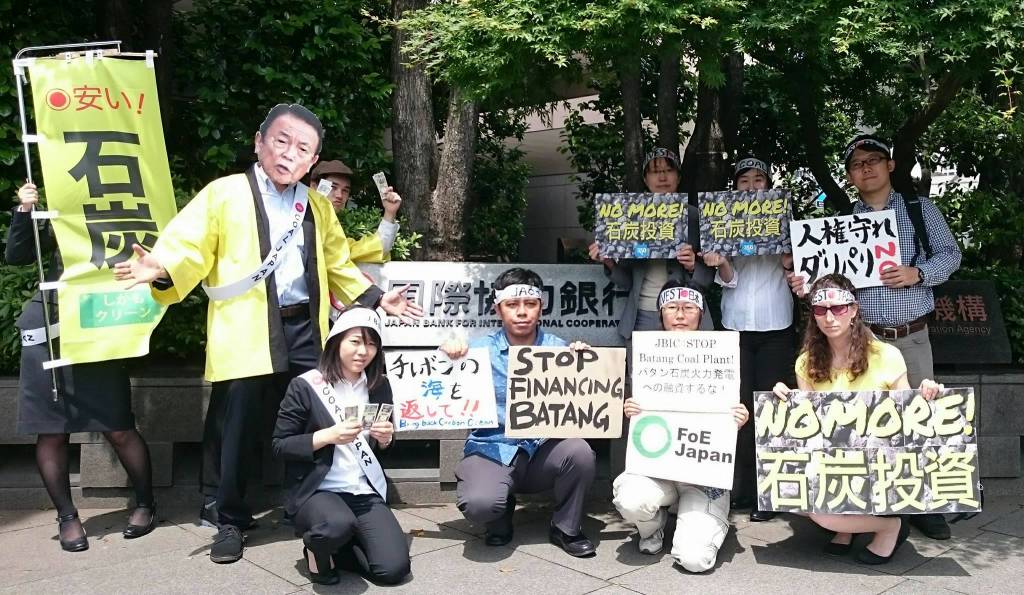
Members from 350.org Japan, Friends of the Earth Japan, WALHI, and Japan Center for a Sustainable Environment and Society rallying in front of JBIC headquarters.
Together with 80 environmental groups from around the world, we submitted an international petition to both the Ministry of Finance and JBIC demanding that the Japanese Government make a public statement during the G7 that they will end all fossil fuel financing and immediately transition to renewable energy. [Bloomberg article on actions here]
For our third action on the 23 May, we conducted a mock award ceremony in front of the IEA Clean Coal Centre’s workshop on high efficiency, low emissions (HELE) coal-fired power plants held in Tokyo attended by IEA officials and clean coal advocates. To highlight the fact that clean coal is not clean (or cool), we presented Prime Minister Shinzo Abe and German Chancellor Angela Merkel the “IEA Clean Coal Award 2016” since the two nations were ranked the worst performers in the G7 Coal Score Card Report published by E3G.
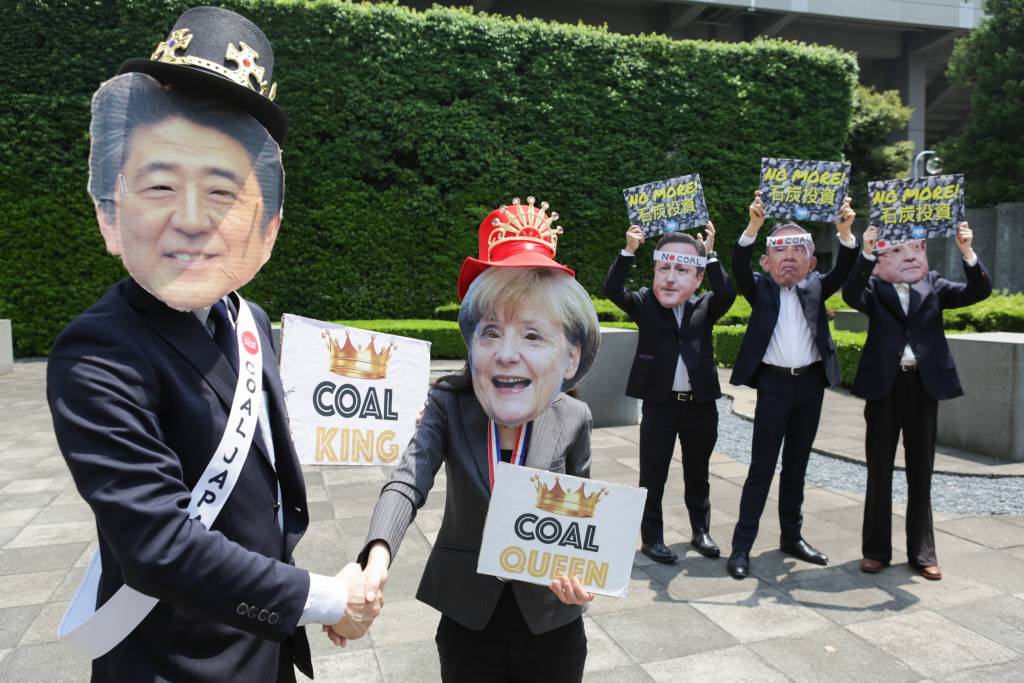
“Clean Coal Awards” Ceremony naming PM Abe and Chancellor Merkel as Coal King and Queen while Cameron, Obama and Hollande look on holding “no more coal finance” placards.
We also distributed “clean coal” gifts to participants of the workshop.
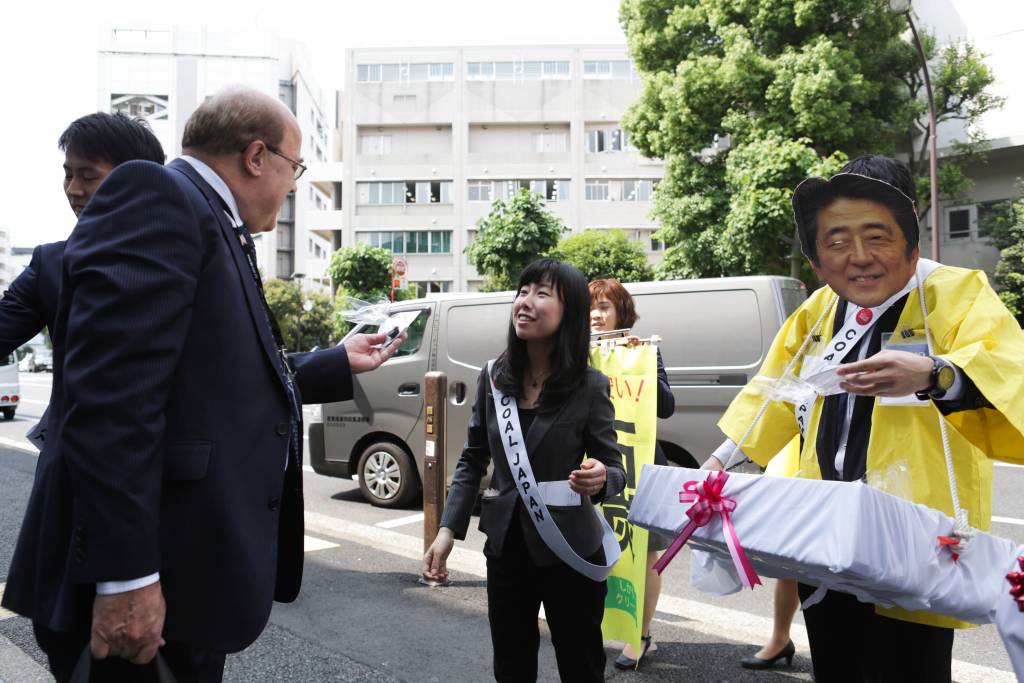
350.org Japan team and volunteers handing out coal “goody bags” to participants of the IEA Clean Coal Workshop.
Moving on from Break Free 2016 and G7, 350.org Japan will continue to amplify our efforts to stop Japan’s coal finance and spread the #DivestJapan campaign. If you stand with us, sign on to our Divestment Statement to urge all Japanese institutional investors to:
- Disclose their investments in fossil fuel companies and nuclear-related companies,
- Shift to investment policies consistent with the 1.5C temperature rise goal,
- Freeze new investments in fossil fuel and nuclear-related companies, and
- Divest completely of holdings in fossil fuel and nuclear-related companies by the 2020 Tokyo Olympics.
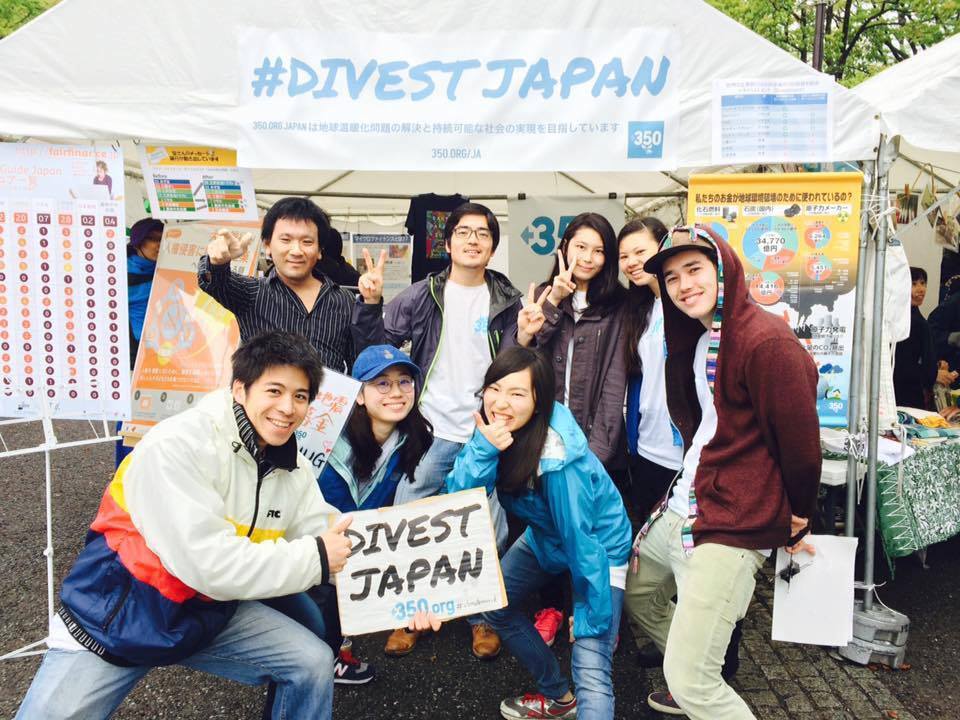
350.org Japan team with volunteers at Earth Day Tokyo 2016 on April 23-24.